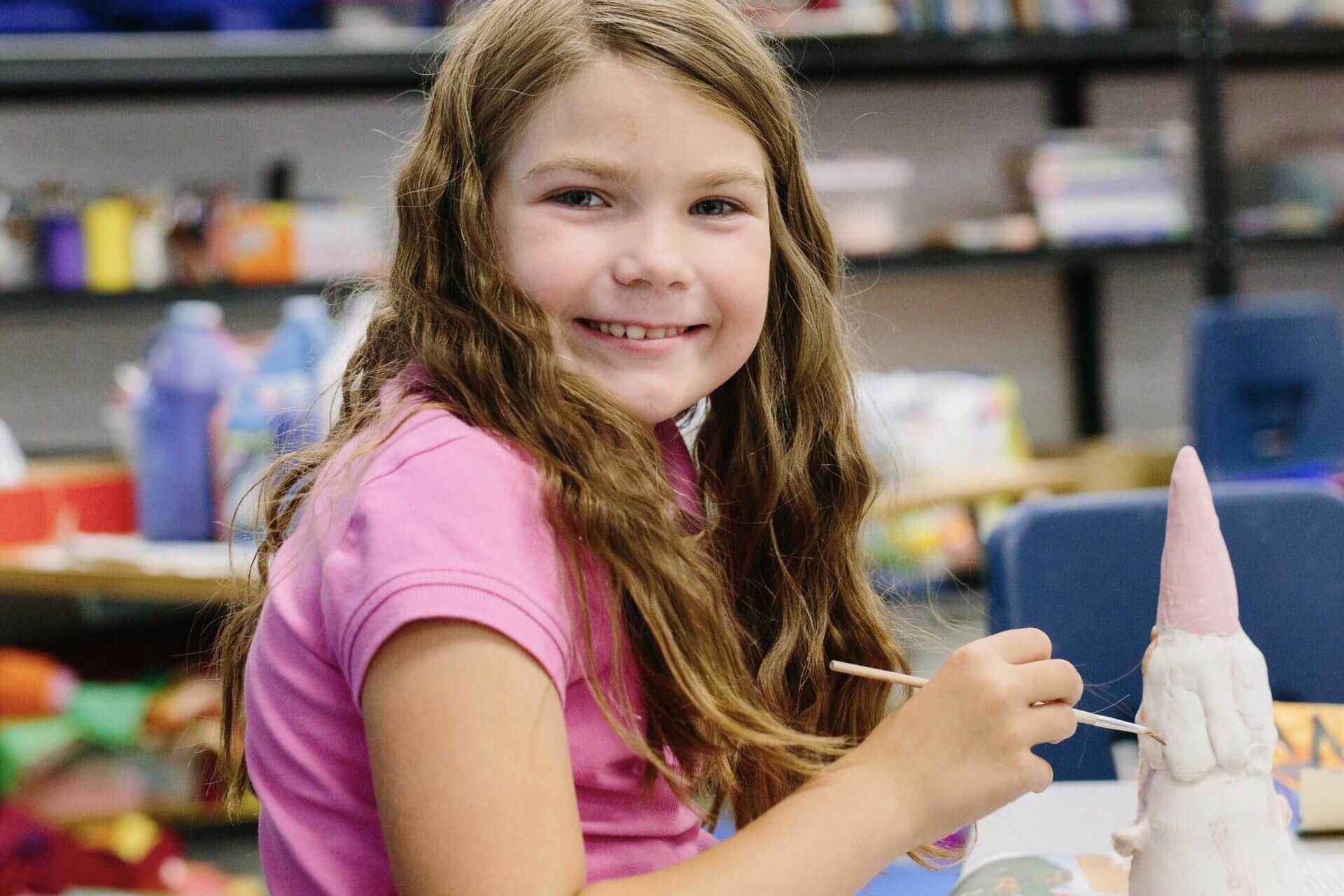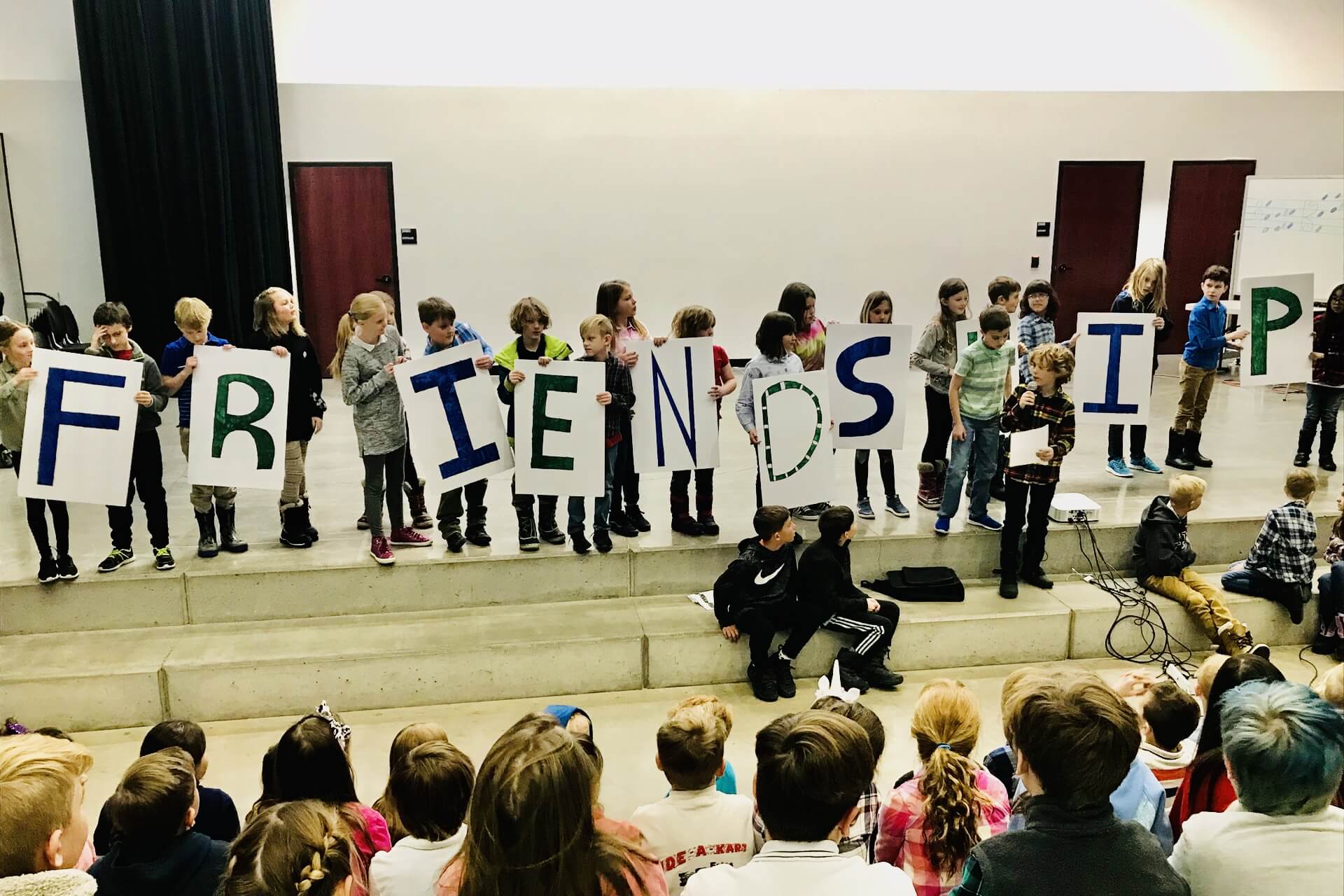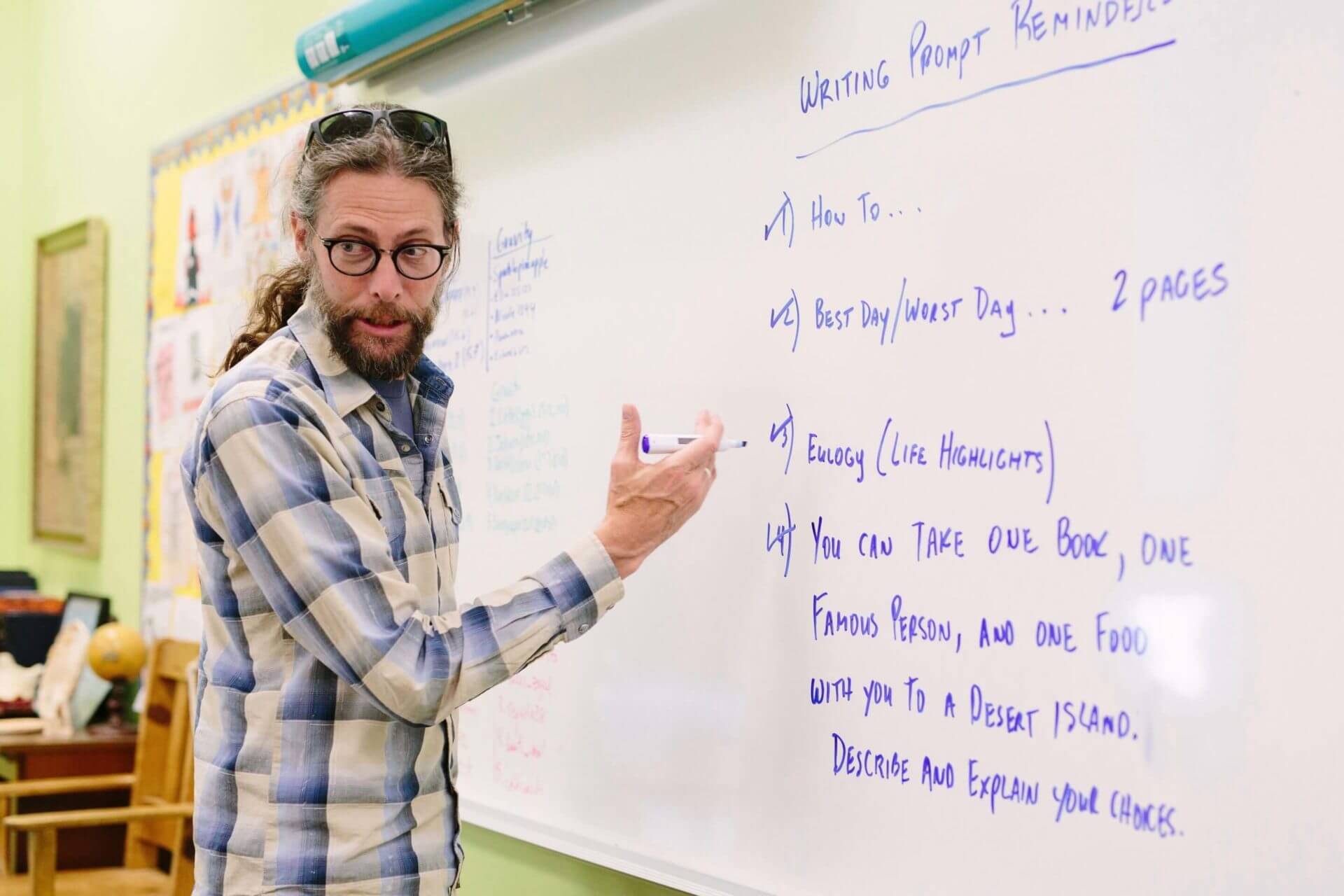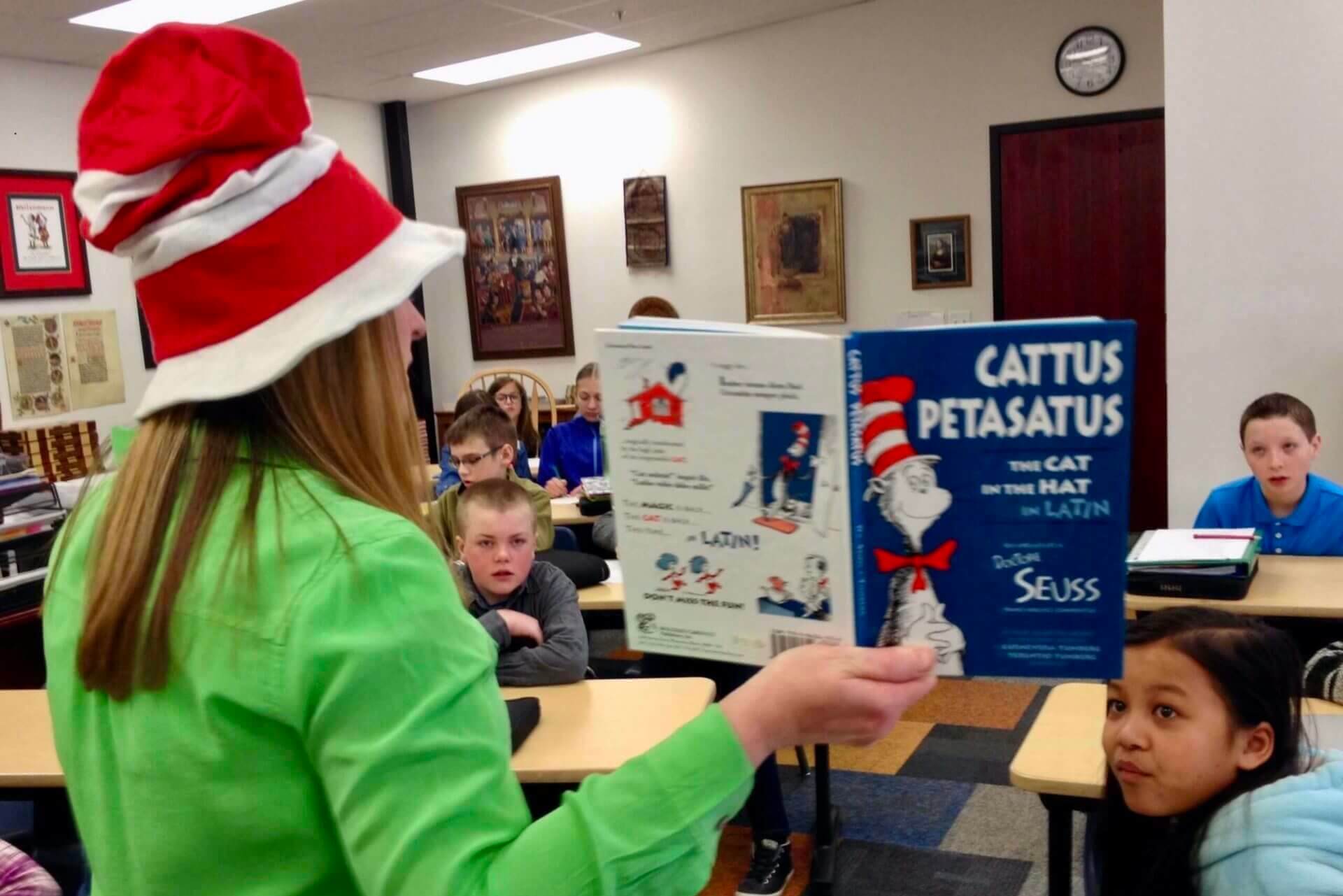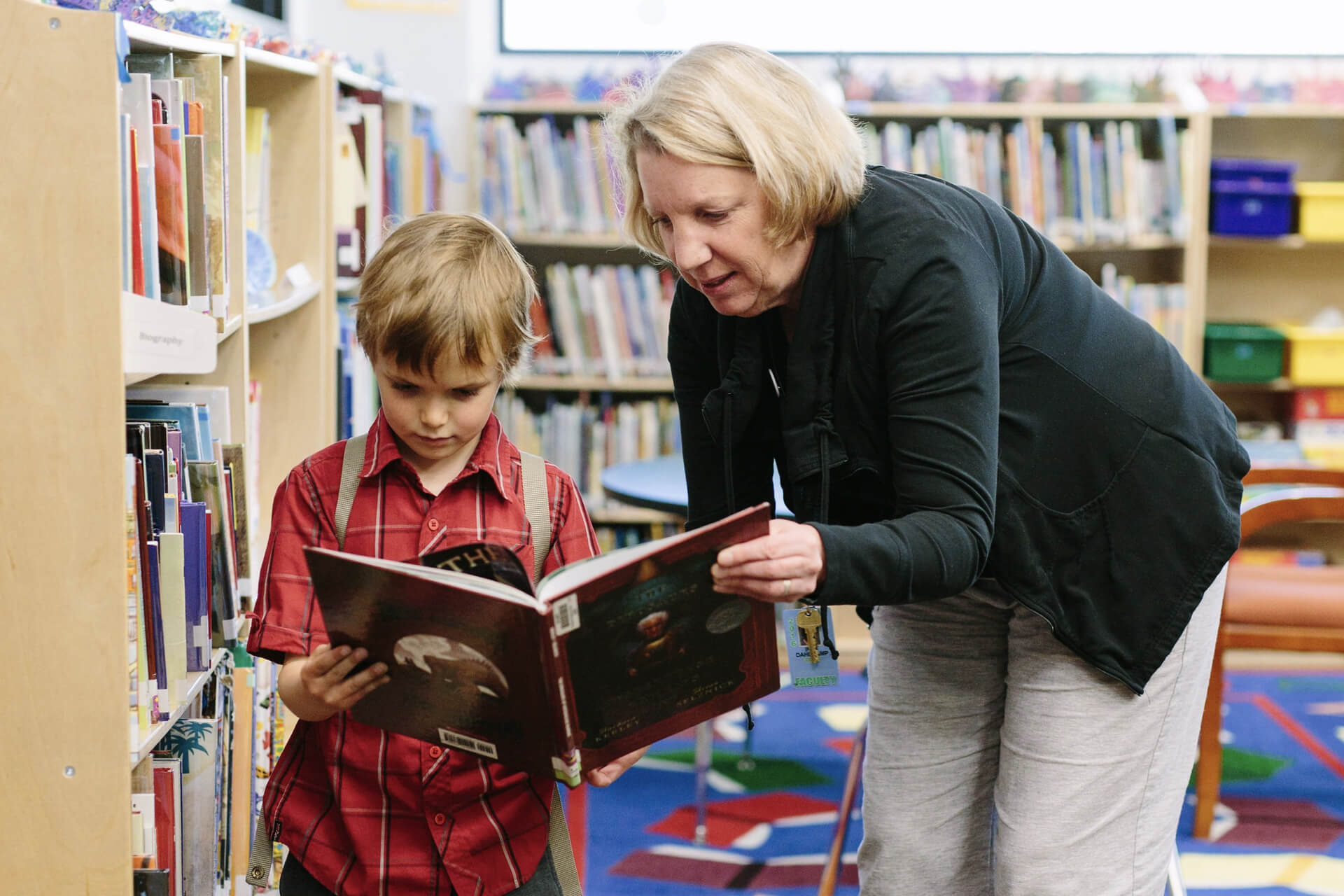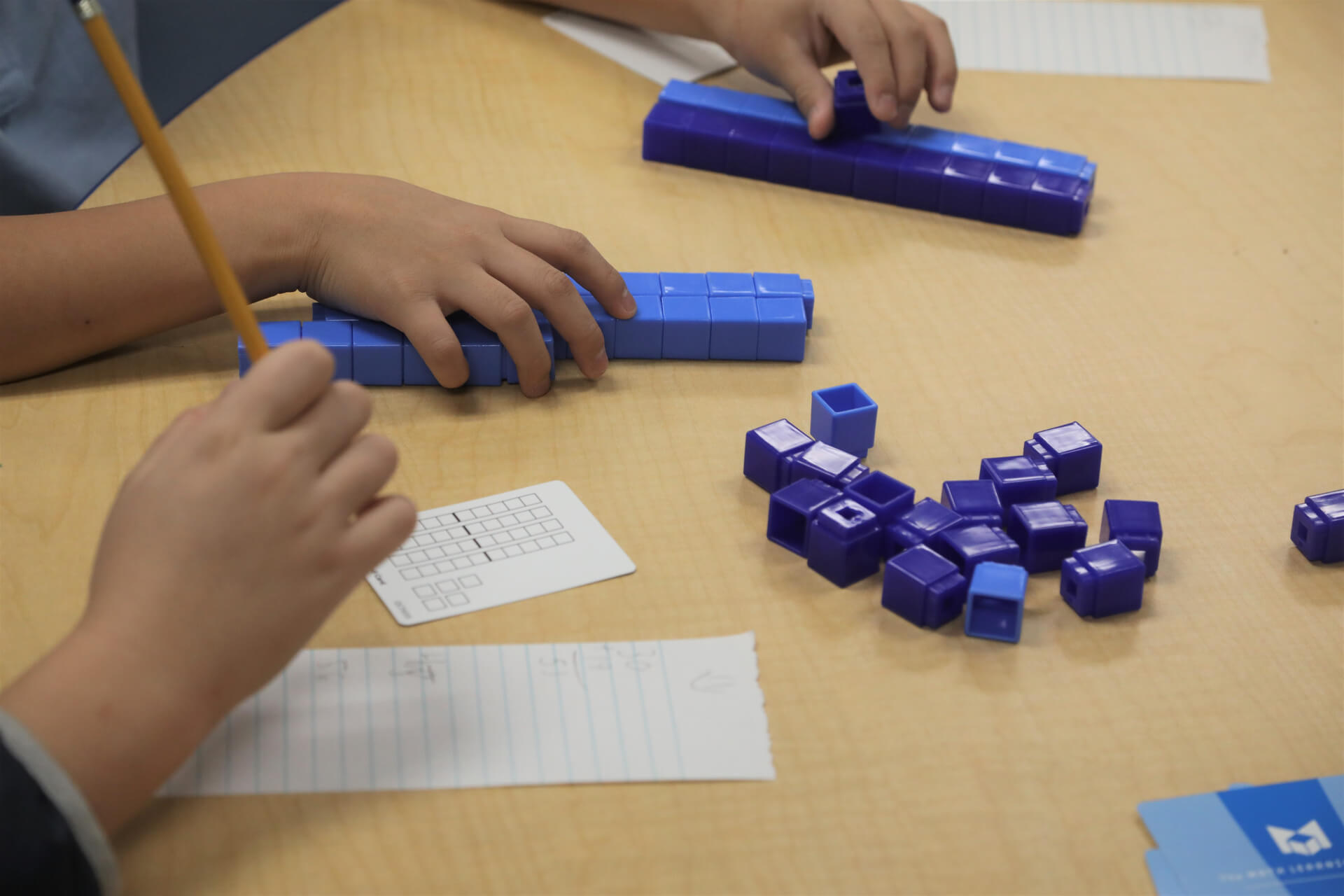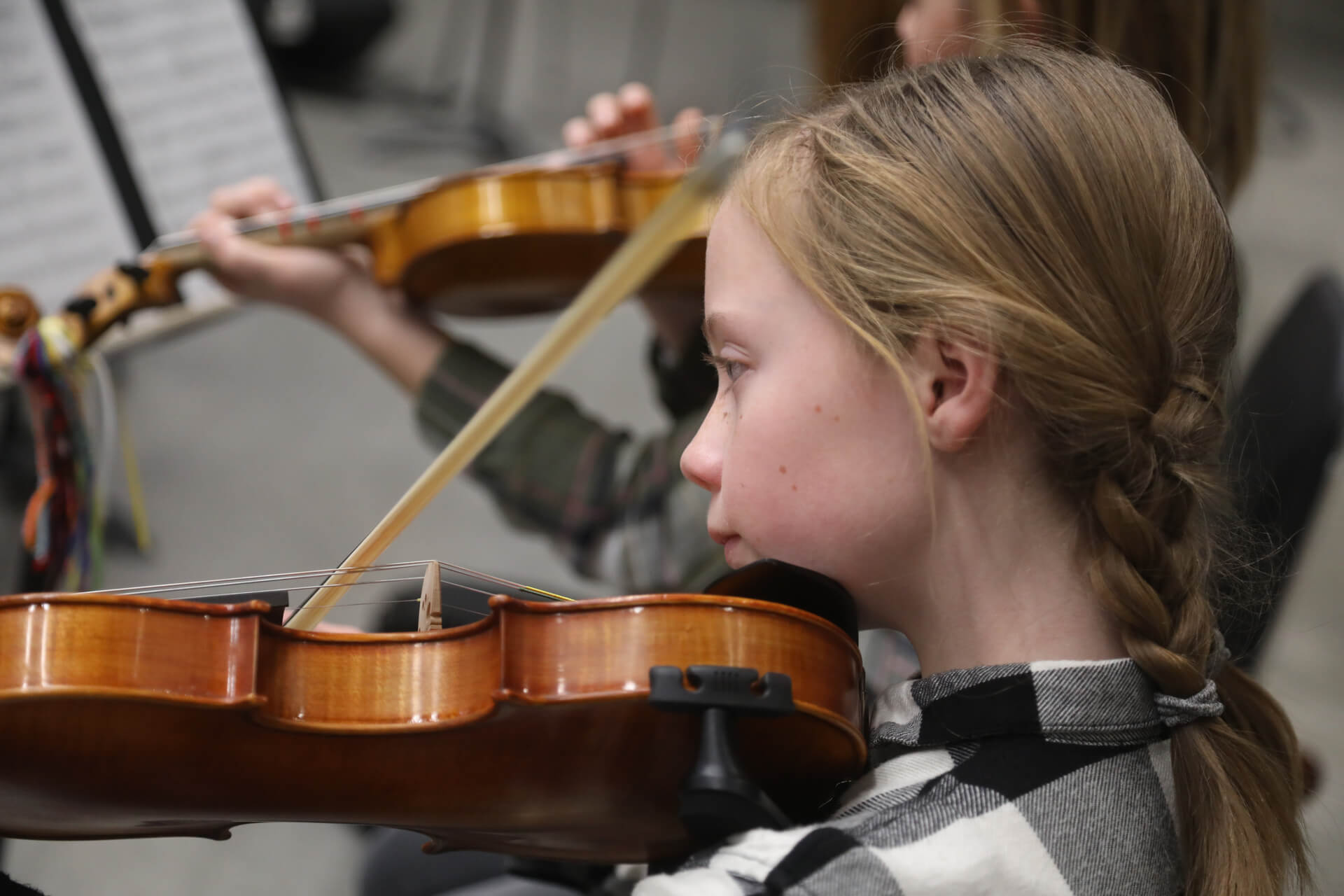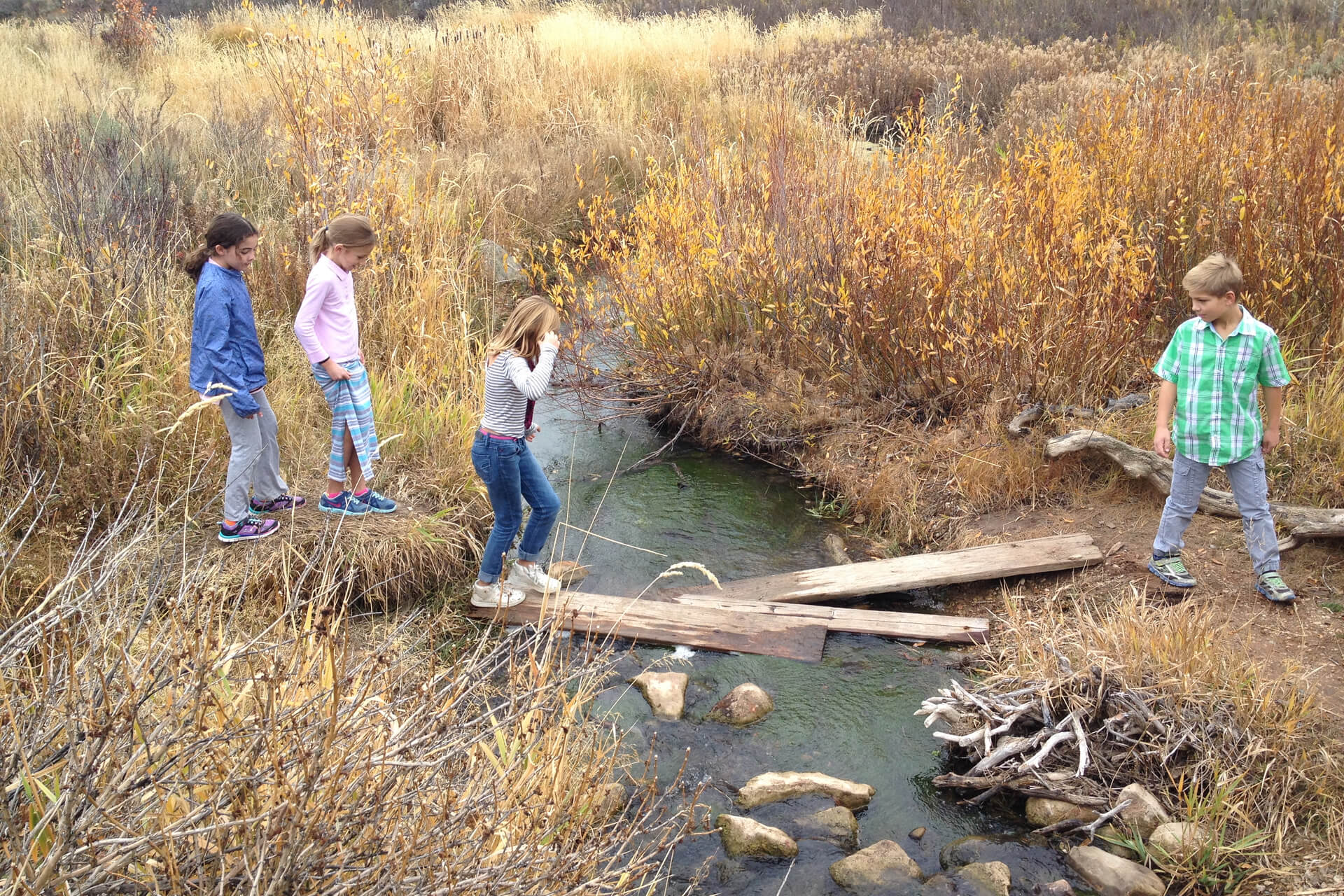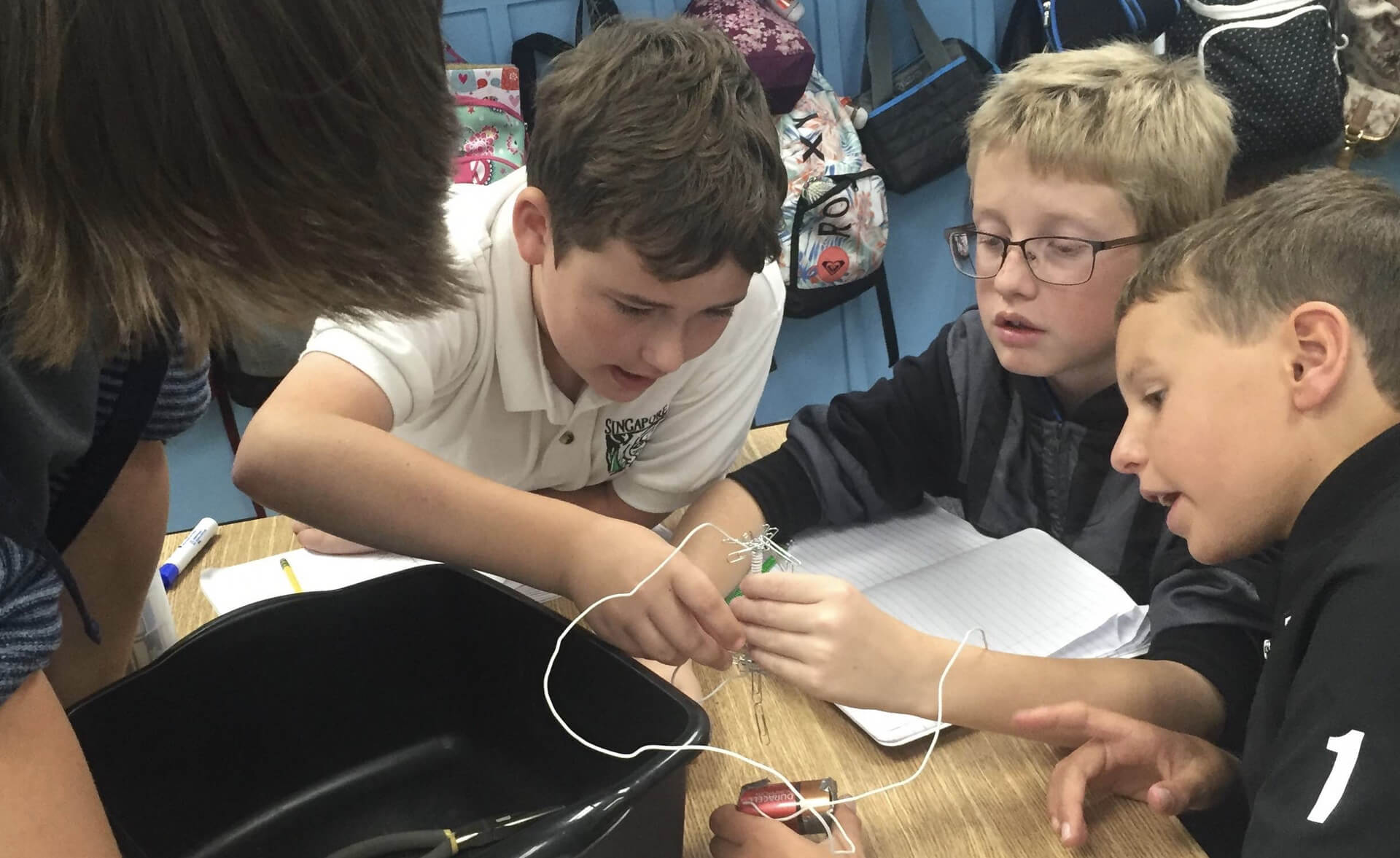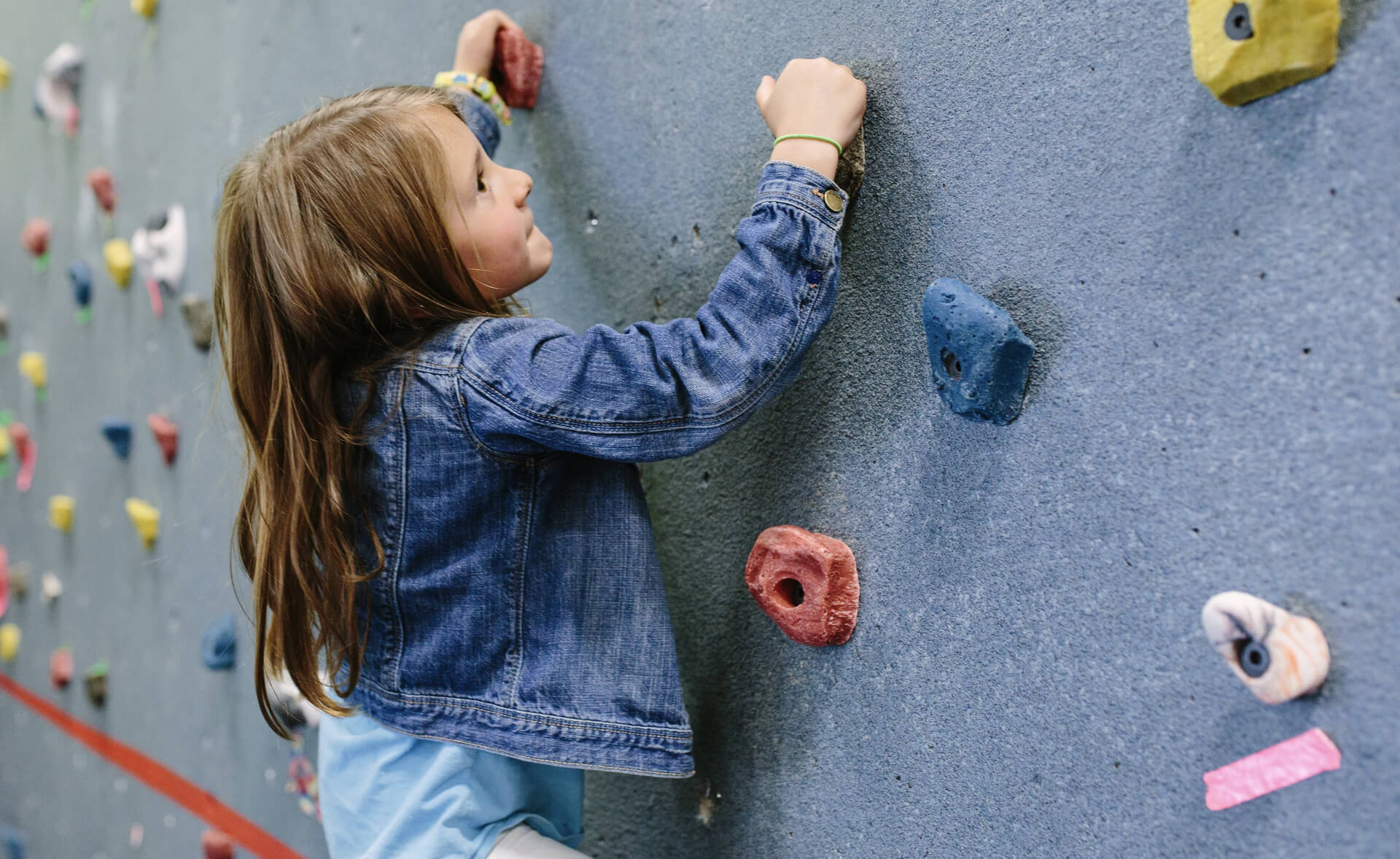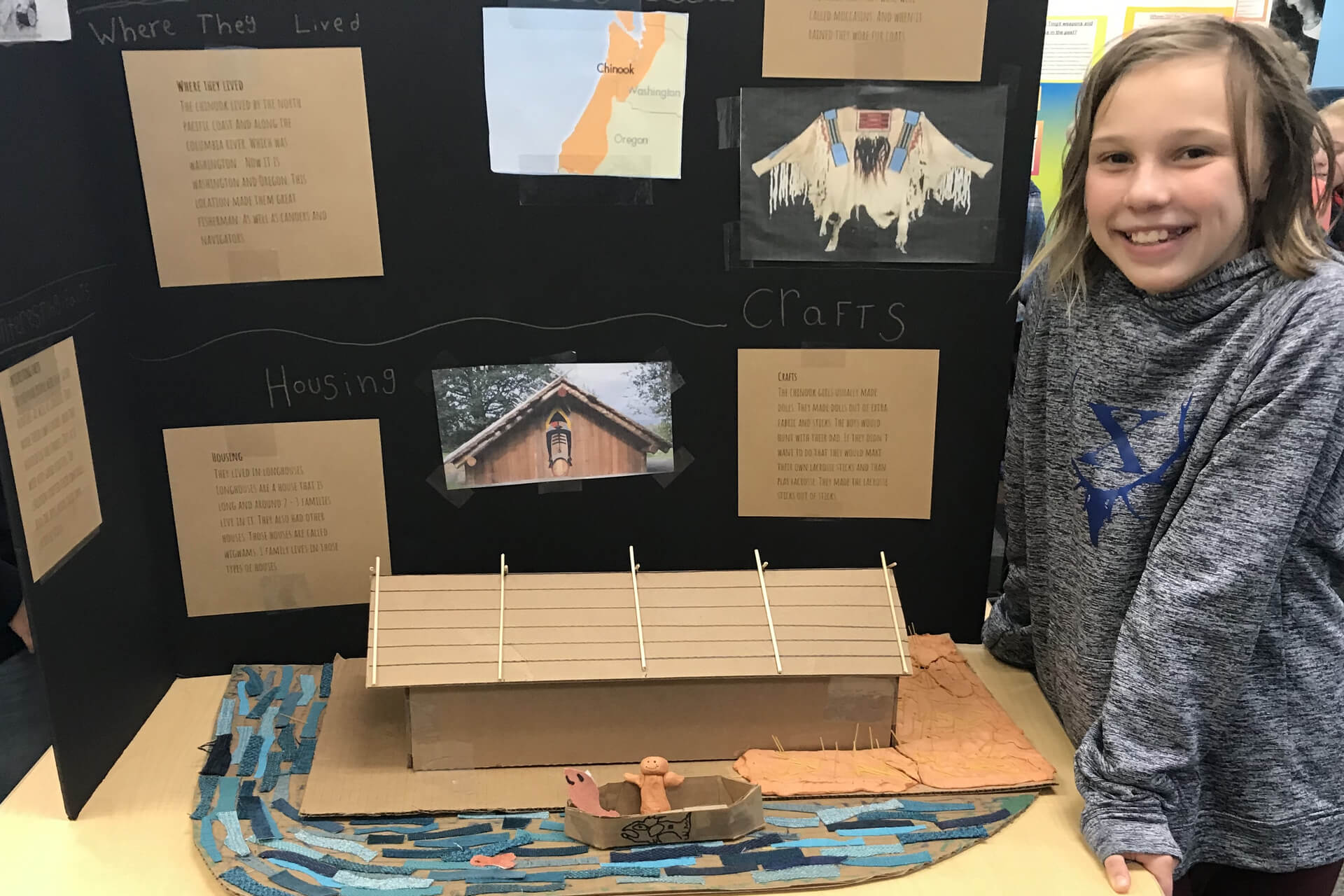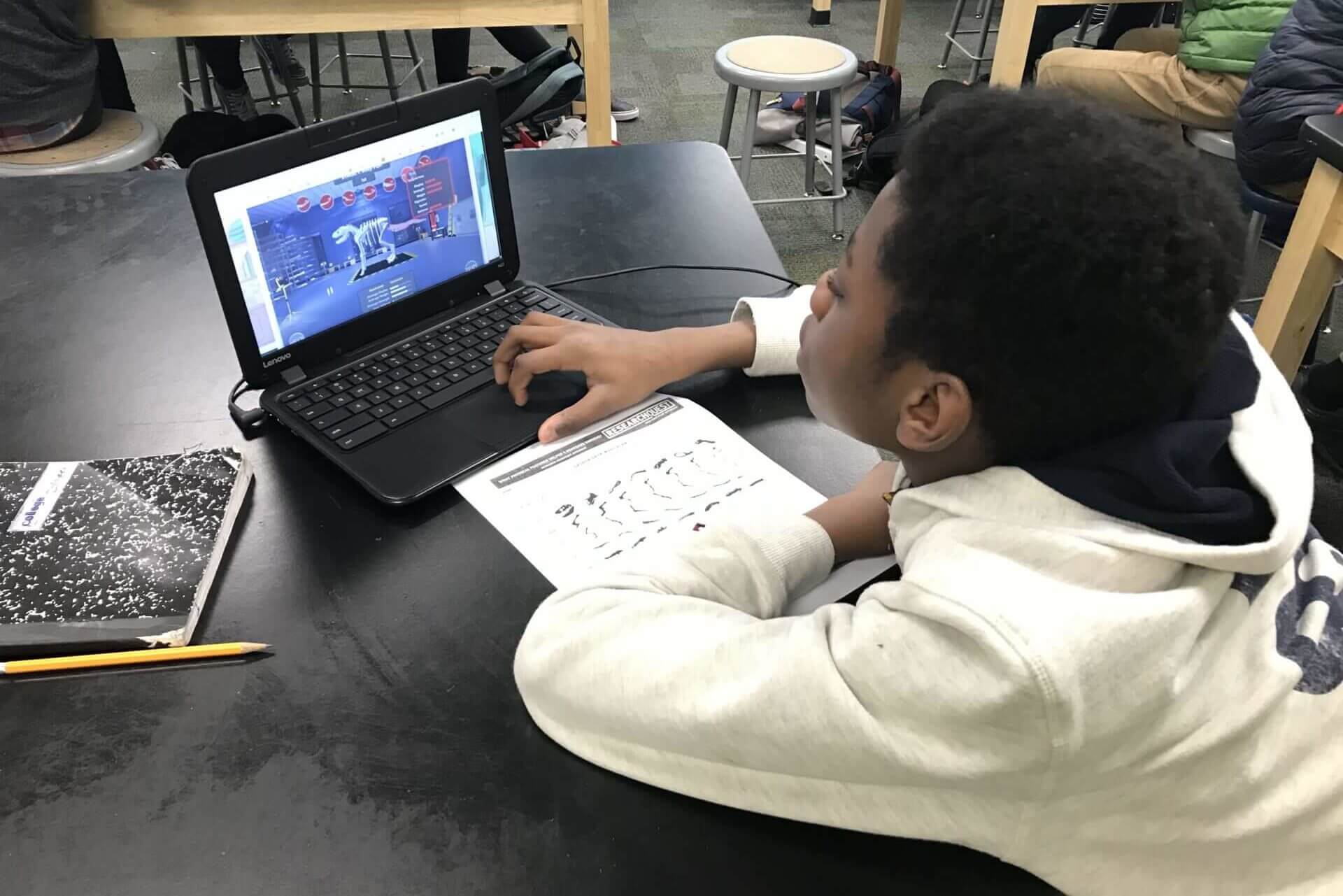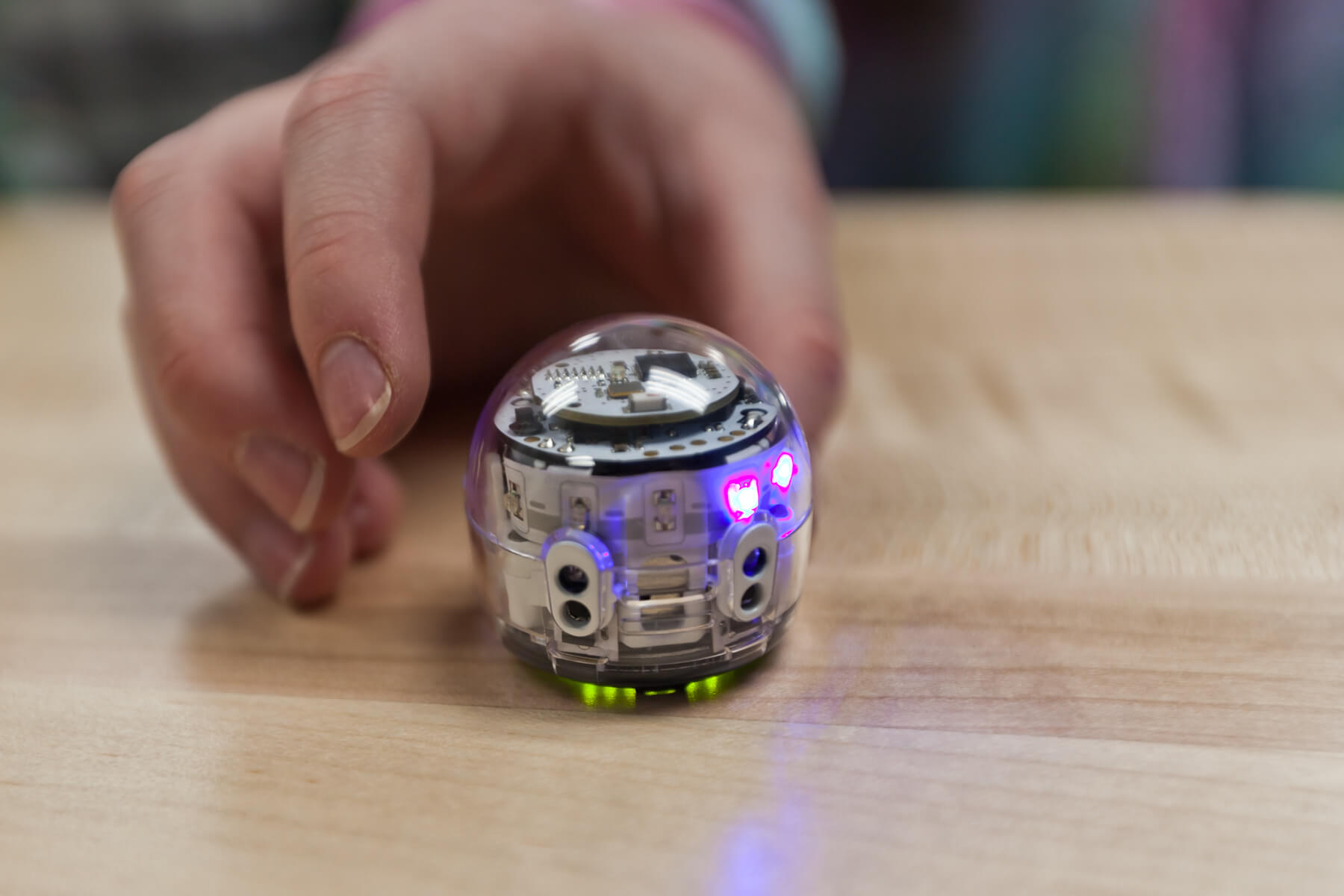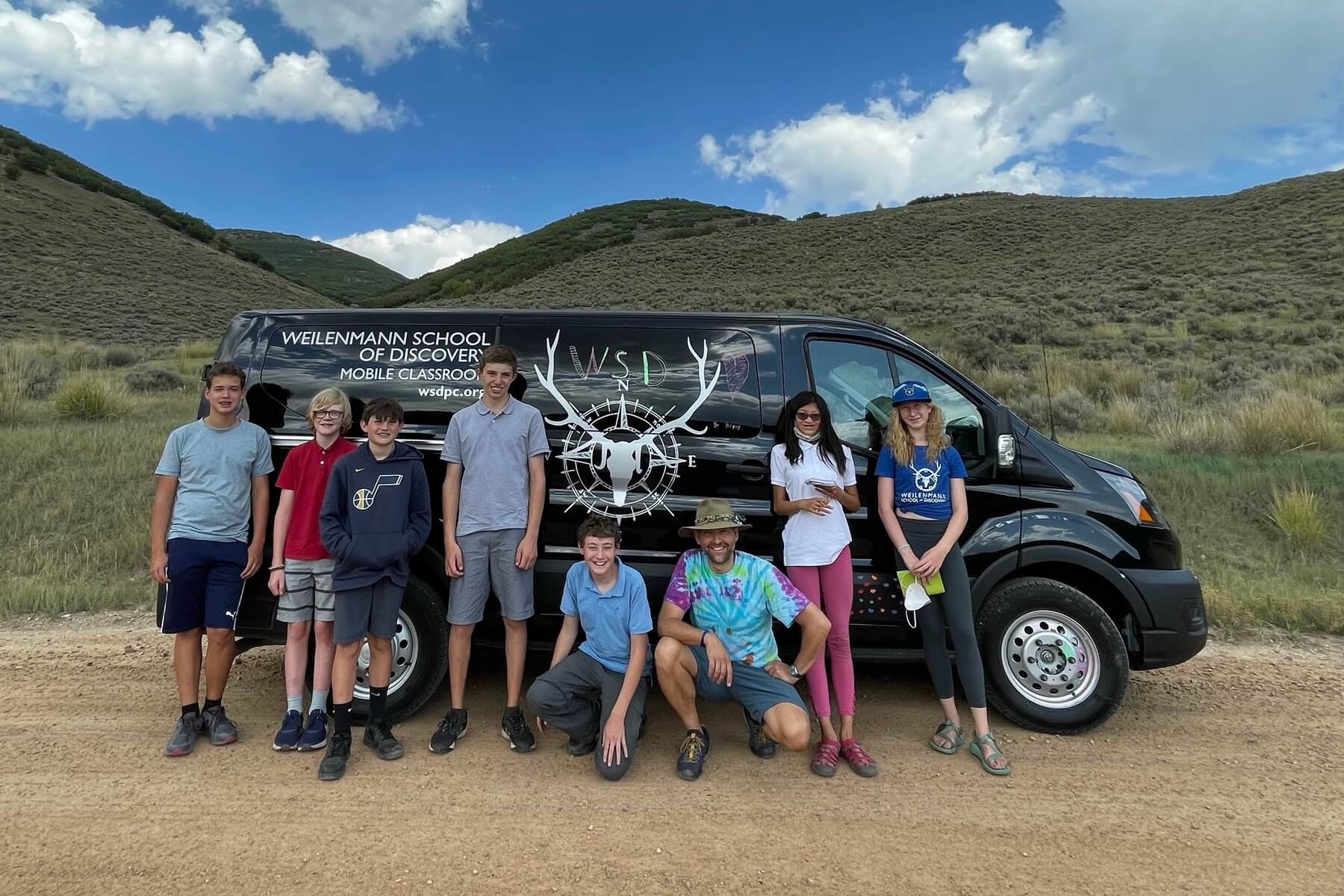Blending tradition and innovation, Weilenmann School of Discovery provides differentiated learning delivered by effective teachers in a close-knit community.
We exceed Utah core standards by integrating visual and performing arts, outdoor education, lab science, PE, and an off-campus Adventure PE program into the K–8 curriculum. Instruction is supported by technology platforms that assist in monitoring the progress of each student in each core subject.
“We are so happy to be at WSD and love everything about it!”
— Stephanie, Lower and Middle School Parent
“I like the teachers, they are really nice. And I love all the projects we do, especially art projects.”
-Kate, Lower School Student
The WSD Difference
The educational experience at WSD includes the following three components.
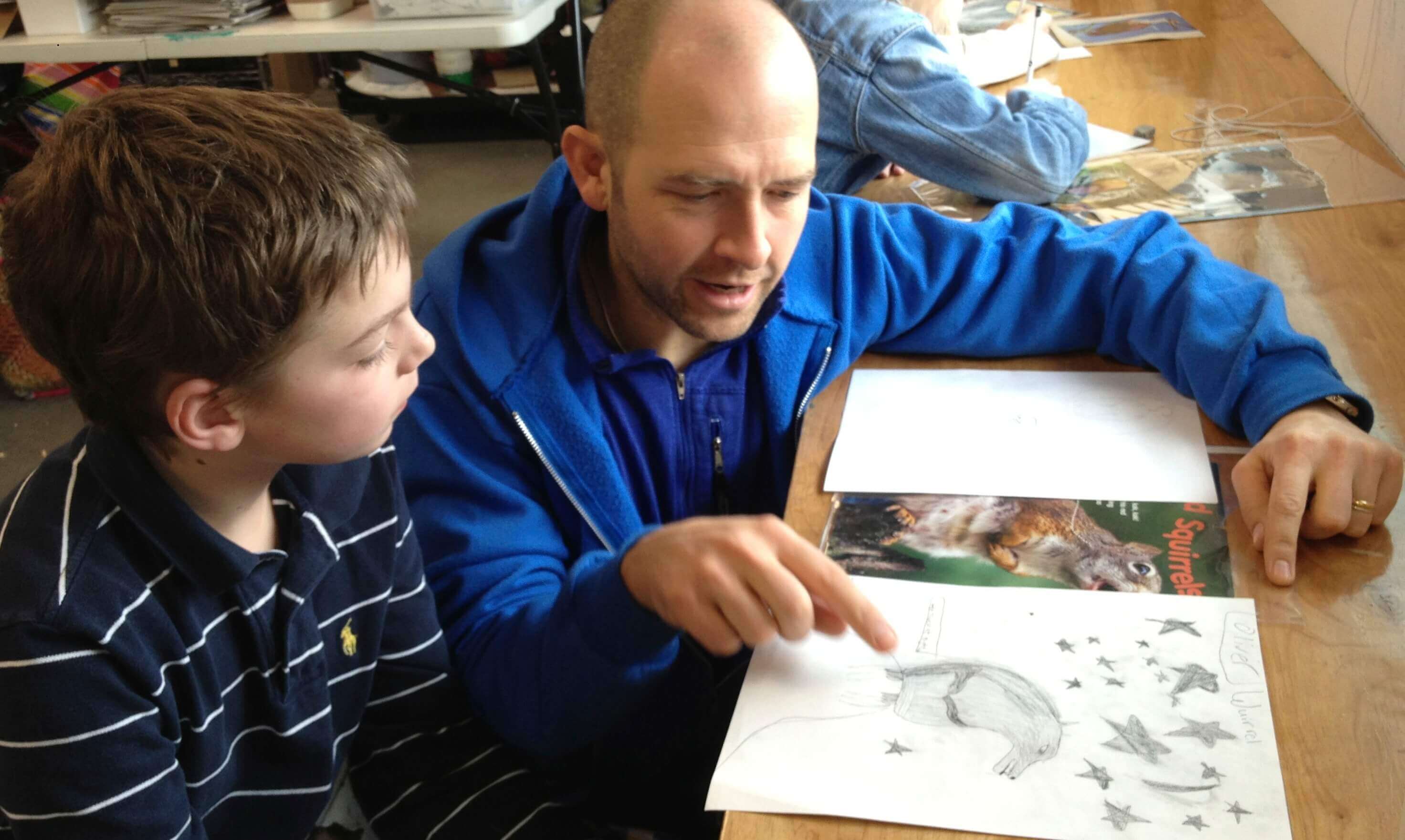
Differentiated Learning
WSD’s model of differentiated instruction recognizes that every student is unique and learns content differently. Teachers differentiate through curriculum, learning process, evaluations and assessments, and the environment where learning happens, in order to respond to students’ interests and unique learning profiles. Project-based learning, technology-supported programs, small and flex groups, tiered learning assistance, and a comprehensive Special Education program are other ways teachers at WSD differentiate instruction to help students at all levels achieve optimal growth.
“At WSD, it seems very individualized. Teachers engage with their students and really get to know them. And the kids know their teachers–and like them!”
-Heidi, Lower and Middle School Parent
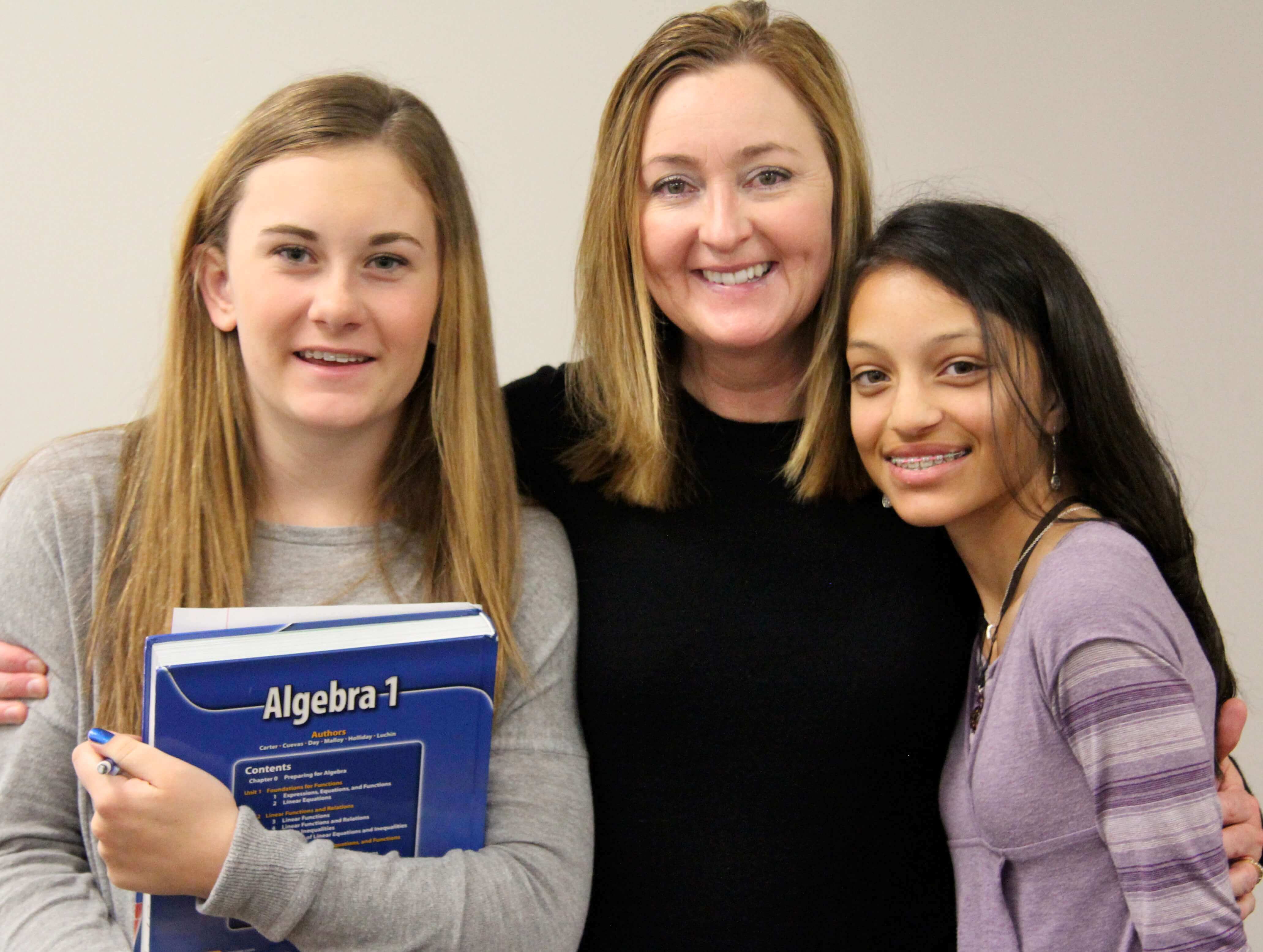
Effective Teachers
So much depends on a great teacher! Our teachers, like our students, are valued and respected as the heart of our school. They are drawn from the best talent available and have diverse backgrounds and interests, impressive professional, academic and leadership experience, and a passion for teaching! Just as we nurture our students along their educational path, we also support our teachers along their professional path by providing continual professional development that includes conferences, seminars and workshops, evidence-based goal setting, mentoring, and opportunities for leadership.
“We love our Lower School experience at WSD! The teachers are kind, patient and do everything they can to challenge the students and help them learn and grow.”
-Jo, Lower School Parent
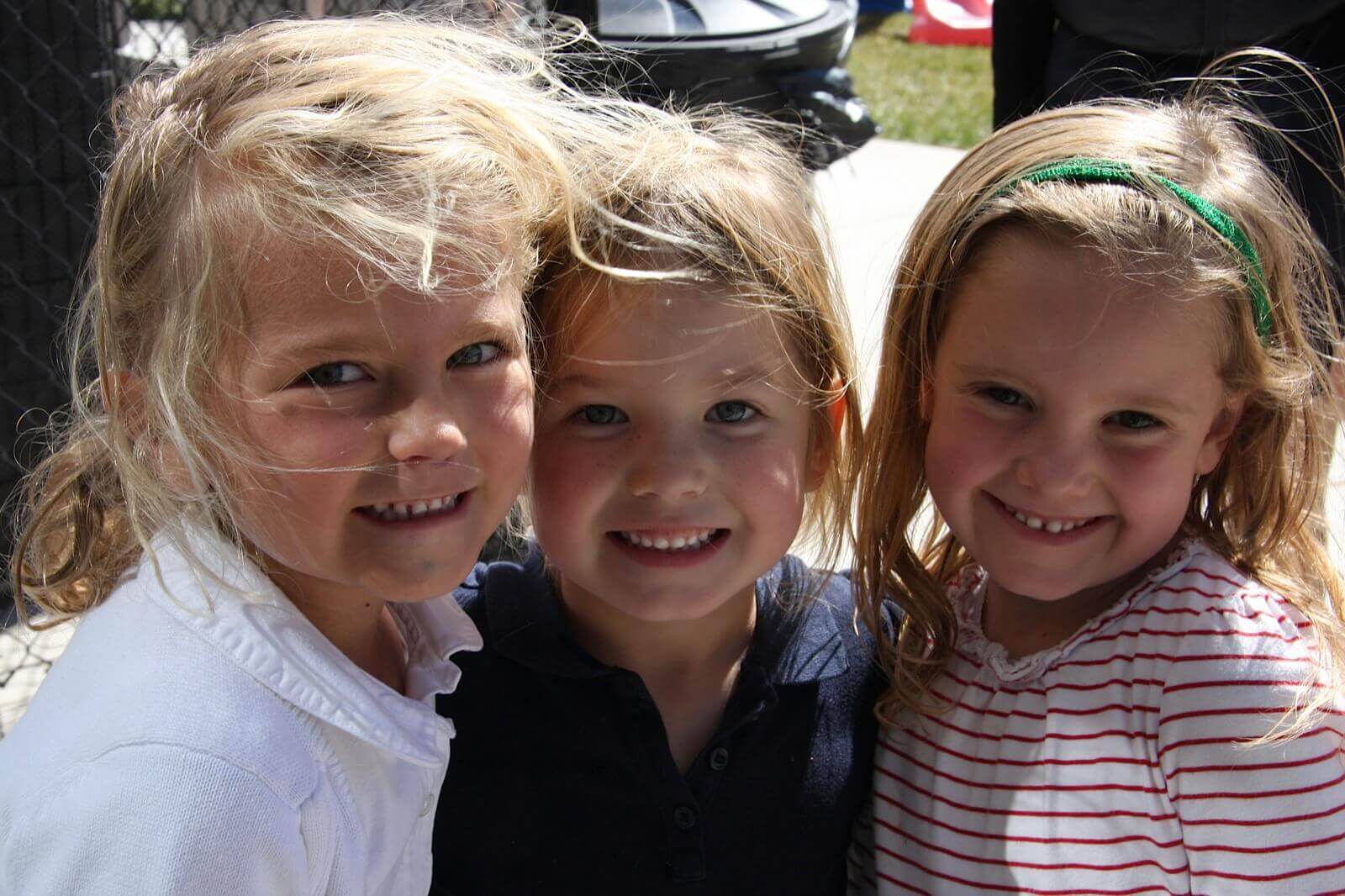
Close-Knit Community
WSD families, teachers, and administrators have one thing in common–we want the best education possible for our students. It’s what brings us together at WSD, and what continues to unite us as partners in the process. Because we draw families out of their neighborhood schools, we have forged our own close-knit and caring community of teachers, students, families and friends. Each member of the WSD community is valued, and each contributes to the ongoing success of the Weilenmann School of Discovery.
WSD's Curriculum
Weilenmann School of Discovery teaches the Utah Core Standards in all subject areas. In addition to English Language Arts, Math, Science, and Social Studies/History, the subjects of Music, Art, PE, and Latin are core requirements at WSD. Outdoor and Environmental Education, Character Education, and Digital Citizenship are also integrated into the curriculum for all grades. Through WSD’s partnership with the Beverley Taylor Sorenson Arts Learning Program and continual collaboration with classroom teachers, the Arts are fully integrated across all subjects and disciplines.
Civics and Character Education
WSD provides civics education in specific subjects in all grades with an emphasis on social studies. WSD also provides settings and opportunities to teach respect for the United States Flag, and patriotic and civic values. Learn more about Civics and Character Education at WSD.
Beverley Taylor Sorenson Arts Learning Program

Keep the Arts in Your Child’s Education
Weilenmann School of Discovery is proud to offer the Beverley Taylor Sorenson Arts Learning Program to our students. BTSALP helps hundreds of thousands of Utah elementary students receive the arts-enriched education they deserve by placing arts teachers specialized in one of four disciplines – dance, music, theater or visual arts – in schools to work alongside classroom teachers and create arts-based lesson plans in the core subjects of reading, math, science, and history.
Thanks to the support of parents across the state, more than 130 schools throughout Utah
are now experiencing the positive impact of arts-integrated learning, including higher test scores and improved student understanding, retention, behavior, attendance, and self-esteem. Without the advocacy of parents and teachers throughout the state, this program could not continue.
With your help, we can work to keep BTSALP at Weilenmann School of Discovery and expand the program into every Utah elementary school. The advocacy organization Friends of Art Works for Kids was established to protect funding for arts specialists in schools and to advocate for arts-integrated learning. If you have not already done so, please show your support of the cause by visiting www.artworksforkids.org. You can use the site to become a friend of Art Works for Kids, to contact your legislator and convey how important this program is to you and your child, and to learn more about how and why arts-integrated education works.
BTSALP & WSD
WSD’s partnership with the Beverley Taylor Sorenson Arts Learning Program benefits students across all grade levels. Specialists in the areas of visual art, music, and PE/movement collaborate with homeroom teachers across multiple disciplines and content areas in arts-integrated instruction. The result is increased support to project-based learning, student engagement, and cross-curricular learning opportunities.
A highlight of WSD’s annual Spring Arts Festival is the student art show, featuring grade level works that have been informed by the study of multiple curricular subjects.
